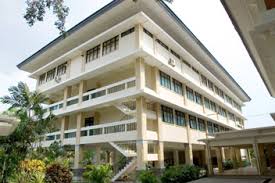 |
University of Brawijaya Department of Business Administration Jl. MT. Haryono 163, Malang, Jawa Timur, Indonesia 65145 Tel. (+62) 0341 - 555 000 — feb@ub.ac |
Location. Fossils and the remains of tools show that the Indonesian archipelago was inhabited by Homo erectus, popularly known as "Java Man", between 1.5 million years ago and as recently as
35,000 years ago. Homo sapiens reached the region by around 45,000 years ago. In 2011 evidence was uncovered in neighbouring East Timor showing that 42,000 years ago these early settlers had
high-level maritime skills, and by implication the technology needed to make ocean crossings to reach Australia and other islands, as the evidence shows that they were catching and consuming large
numbers of big deep sea fish such as tuna.
There are around 300 distinct native ethnicities in Indonesia and 742 different languages and dialects. Most Indonesians are descended from Austronesian-speaking peoples whose
languages can be traced to Proto-Austronesian, which possibly originated in Taiwan

View of West Malang from the tower at the University of Malang
Malang is the second largest city in East Java province, Indonesia. It has an ancient history dating back to the Mataram Kingdom. The city population at the 2010 Census was 820,000. During the period of Dutch colonization (1602-1949) Malang was a popular destination for European residents. The city is famous for its cool air and the surrounding country regions. People in East Java sometimes call it "Paris of East Java." Malang was spared many of the effects of the Asian financial crisis of 1997, and since that time it has been marked by steady economic and population growth.
University of Brawijawa (UB), established in 1963 and located in Malang, is a state university. UB is a leading university in Indonesia with more than 52,000 students in degrees ranging from the diploma programs (one- and two-year), Bachelorís degree program, Masterís degree program, Doctoral degree program, and Medical Specialist program in 11 faculties. UB's campus is in the city of Malang, East Java, in a strategic location easily reached by public transportation. The campus has a pleasant climate with many trees and the cool air of Malang at 475 meters elevation.
|
University of Brawijaya Established: 1963 Type: State university Campus: 450 acres Rector: Prof Dr Ir Yogi Sugito 12 Faculties, 2 Faculty Level of Study Programs, and 1 Vocational Program Academic staff: 1,928 Administrative staff: 1,659 Students: 52,172 Graduates: 6.222 (2012) Other students: 2,000 Websites ub.ac.id/en English | Official university profile | Faculty of Administrative Sciences | YouTube Slideshow on YouTube | Universitas Brawijaya Video Profile | Fakultas Di Universitas Brawijaya 2012 YouTube slideshow | |
   
|